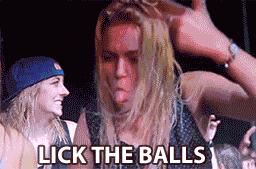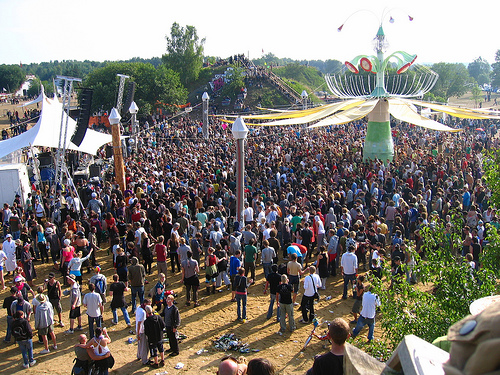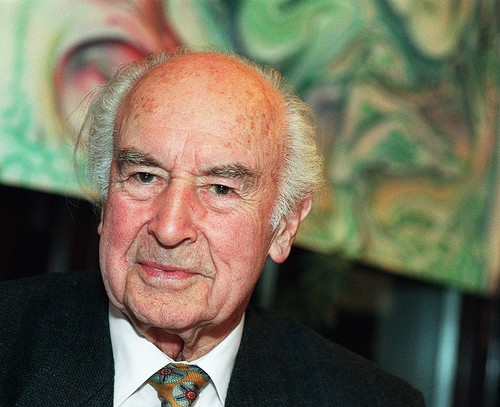Things tagged drugs:
Stewart Brand Revisits the Trips Festival, 50 Years Later
Gabe Meline inteviews Stewart Brand at KQED:
The psychedelic thing mainly was a signifier that one was part of a certain cohort, of a certain body of people who were of a certain age, who got to know each other. It was social in that sense. As a drug, I think it’s probably not as social as Ecstasy, or MDMA – which I haven’t tried, but its reputation is highly social. The formula I was working on with public events and with the WELL is that you collect a bunch of interesting in the same place at the same time, and then turn up the flame – such that they mix more rapidly, and their budding emotion is more intense. It’s just the basic formula of how you make a good party. I’m not a party animal. But maybe because of that, if there is going to be a party that I am involved in, I want to make sure it’s overwhelming.
Marijuana dispensaries save lives, new study shows
Eric Levitz at MSNBC:
The United States has a problem with painkillers. During the past 15 years, America has seen a tremendous growth in both the sales of prescription opiates and the number of people who die each year from abusing them. More than 16,000 people fatally overdosed on prescription painkillers in 2013, accounting for 60% of all overdose deaths, according to the Center for Disease Control. But a new study suggests that some states have already stumbled onto a means of curbing this fatal epidemic: Easily-accessible marijuana.
How America Overdosed on Drug Courts
Maia Szalavitz in Pacific Standard:
Hailed as the most compassionate way for the criminal justice system to deal with addicts, drug courts were designed to balance punishment with rehabilitation. But after 25 years, the verdict is in: Drug courts embolden judges to practice medicine without a license—and they put lives in danger.
The Irrationality of Alcoholics Anonymous
Gabrielle Glaser in The Atlantic:
The 12 steps are so deeply ingrained in the United States that many people, including doctors and therapists, believe attending meetings, earning one’s sobriety chips, and never taking another sip of alcohol is the only way to get better. Hospitals, outpatient clinics, and rehab centers use the 12 steps as the basis for treatment. But although few people seem to realize it, there are alternatives, including prescription drugs and therapies that aim to help patients learn to drink in moderation. Unlike Alcoholics Anonymous, these methods are based on modern science and have been proved, in randomized, controlled studies, to work.
Why Is This Rogue Needle Exchange Handing Out Meth Pipes?
Brendan Kiley in The Stranger:
As Allan Clear, executive director of the Harm Reduction Coalition in New York City, puts it, “If you want to engage with drug users and build their trust, you have to provide something meaningful to them. A stem or a pipe helps build that relationship… it makes it more likely that they’ll return for advice or medical care if you have provided them with something useful in your first interaction—something you didn’t have to give them.”
The Rational Choices of Crack Addicts
John Tierney in the NYT:
“If you’re living in a poor neighborhood deprived of options, there’s a certain rationality to keep taking a drug that will give you some temporary pleasure,” Dr. Hart said in an interview, arguing that the caricature of enslaved crack addicts comes from a misinterpretation of the famous rat experiments.
Oh the dutch
Well, this is something. (Note, this is not the actual music being played, but he was a producer on that track. And yes I know T.Raumschmiere is not dutch. I’m not sure he is resident on planet earth in this particular instance.)
The Heretic
Tim Doody in The Morning News:
For decades, the U.S. government banned medical studies of the effects of LSD. But for one longtime, elite researcher, the promise of mind-blowing revelations was just too tempting.
DutchTek 2008
Boy those DJ's sure look happy don't they?
Here you can see a good example of the dutch "tekno" dance.
Check the girl rocking out at 4:10.
Fusion Festival
End of June - every year the same procedure… On a former Russian military airfield in the middle of nowhere in the fields of northern Germany FUSION arises, the biggest holiday and party camp all over the place. 4 days of holiday communism is the motto and as such the programme covers it all.
Where’s Waldo?:
Photo by phogel
Good overview of the camp and my favorite stage:
Rumor was 40k people by sunday.
Remute midnight friday:
Whoa:
Sunday morning, DJ Koze:
Could an Acid Trip Cure Your OCD?
Linda Marsa in Discover Magazine:
At a handful of sites across the country, after a four-decade hiatus, psychedelic research is undergoing a quiet renaissance, thanks to scientists like Charles Grob who are revisiting the powerful mind-altering drugs of the 1960s in hopes of making them part of our therapeutic arsenal. Hallucinogens such as psilocybin, MDMA (better known as Ecstasy), and the most controversial of them all, LSD, are being tested as treatments for maladies that modern medicine has done little to assuage, such as post-traumatic stress disorder, drug dependency, obsessive-compulsive disorder, cluster headaches, and the emotional suffering of people with a terminal illness.
While Grob’s study is not complete—he has tested 11 out of a projected 12 volunteers—patients seemed to have positive experiences. “No one had a bad trip, and most derived some benefit,” he says. “It lowered their anxiety, improved their mood and disposition, and imbued them with a greater acceptance of their situation and capacity to live in the moment and appreciate each day.”
This is a fairly well written article that covers the basics of past psychedelics research, and the current minimal studies that are going on now. I have archived the article here because Discover's site is completely broken in Safari, and hideously unusable in Firefox.
LSD Inventor Albert Hofmann Dies at 102
Thomas H. Maugh II | Los Angeles Times Staff Writer:
But Hofmann's life had already been altered. LSD and the other psychoactive drugs "changed my life, insofar as they provided me with a new concept about what reality is," he said. "Before, I had believed there was only one reality: the reality of everyday life.
"Under LSD, however, I entered into realities which were as real and even more real than the one of everyday." He also "became aware of the wonder of creation, the magnificence of nature and of the plant and animal kingdom. I became very sensitive to what will happen to all this and all of us."
When I Sold My Soul to the Machine
Some excerpts from "When I Sold My Soul to the Machine" a documentary on the dutch electro/techno scene around Bunker Records in The Hague during the 90's
part 1
part 2
part 3
part 4
part 5
See also Slices dvdmag on Legowelt and Guy Tavares:
part 1
part 2
Via Leyburn at someplace special.
72-Hour Party People
Posted by Warren Ellis to Warrenellis.com.
Denver - News - 72-Hour Party People
“I consider this shit an excellent use of my tax dollars,” Nick says, rattling a bottle of ProVigil. “It helps keep people from going werewolf around hour 50.”
Stairway to Heaven: The Quarter-Note Version
Posted by Kenny G to WFMU's Beware of the Blog.
Composer Thomas Dimuzio has taken this classic rock tune, reversed it, cut it up into quarter-notes and then reassembled it in forward order to retain the melody.
Seems like this would be a good headfuck when you are tripping.
There is nothing more to read, but you can go read it at WFMU's Beware of the Blog.
Thoughts about "Pete's Couch":
Posted by Jonathan Adler to Volokh.
This Slate article about the federal Office of National Drug Control Policy's new anti-marijuana ad, "Pete's Couch" prompts the following question: If one of the greatest harms of marijuana use is that it makes you lazy -- as one would expect it to be if the federal government is producing ads about it -- why is marijuana use a criminal offense?
Via a post by Jonathan Adler at Volokh. Interesting comments there.


